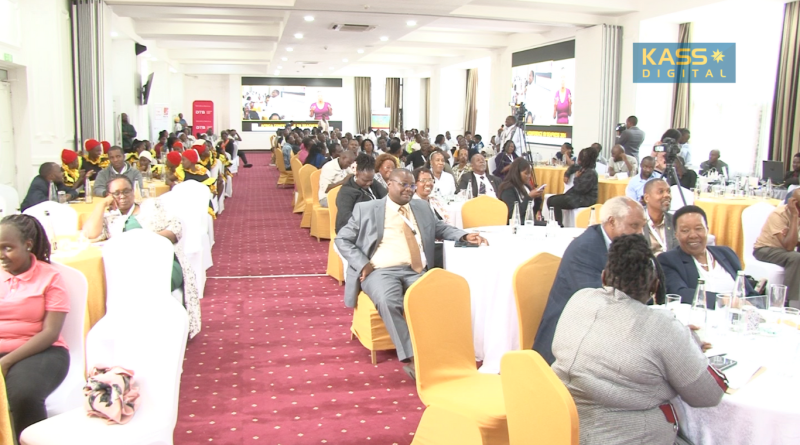A Silent Cry: Advocates Push for Change to Protect Deaf Children from child labour.
By Caro Tomno
Thousands of deaf children across the African continent are at risk of child labour and other forms of exploitation as their rights overlooked and their voices unheard. Human rights organizations have raised the alarm, highlighting how communication barriers and societal neglect leave deaf children especially vulnerable.
During the first ever continental conference for deaf persons held in Nairobi, the Kenya society for deaf children, advocacy groups and teachers, rallied together, calling for the urgent passage of the People Living with Disabilities Bill 2023, a piece of legislation that promises to transform the lives of people with disabilities, including deaf individuals.
Teachers of the deaf echoed these concerns, recounting stories of their students being forced into labour instead of sitting in classrooms.
“Deaf children are more likely to be exploited because they can’t easily communicate their struggles,” says Christine Kirui, a teacher at a special needs school in Kenya. “They deserve better and should be in school not at home.”
The Kenya society for deaf children chief executive officer, Rhoda Kabiti, believe the People Living with Disabilities Bill 2023 could be a game-changer. The proposed law would enhance accessibility to education, healthcare, and employment for people with disabilities. For deaf individuals, this means better access to interpreters, assistive technologies, and schools equipped to meet their needs. It also aims to create stricter protections against child labour and exploitation.
“The bill is not just about rights; it’s about survival and dignity,” says the CEO. “We can’t afford to wait. Every day that passes without action, more children are put at risk.”
She adds, that despite the urgency, progress on the bill has been slow, with bureaucratic delays and competing legislative priorities hindering its passage. She appealed to law- makers to hasten the process of implementing the law.
Human rights groups are now amplifying their calls for action, and meeting with policymakers to stress the importance of swift implementation. She was speaking at the end of a three- day continental conference on deafness. The conference focused on harmonizing sign language across the Africa, formulating essential policies for deaf children, and exploring technological solutions to support deaf education and inclusion.
Kenya Society for Deaf Children (KSDC) Chairman Francis Ng’ang’a, added that communities, should not stigmatize deaf individuals and instead embrace them to enable them to fully fit in society without facing any form of discrimination.
“The stakes are high. Without the bill , deaf children in Kenya will continue to face limited opportunities and heightened risks of abuse. With it, they could finally have access to the resources and protections they need to thrive. As the debate over the bill continues, one thing remains clear: the silent cries of Kenya’s deaf children can no longer be ignored. Their future depends on the decisions made today”, he said.
Geoffrey Wathigo, is a father, whose journey of raising a deaf son is one of resilience and determination. Despite the challenges, his son is now a successful computer engineer.
“The journey wasn’t easy. The lack of resources and understanding for the deaf community made it difficult to ensure my son got the education and support he needed. But through perseverance, we overcame the barriers.”
Geoffrey emphasizes that society must embrace sign language to create a more inclusive environment for deaf individuals and their families. The push for legislative reform comes as a report from the International Labour Organization (ILO) troubling rise in child labor across the continent. Poverty, lack of access to education, and inadequate protections have worsened the situation for children, especially those with disabilities. The situation is particularly dire in Kenya, where deaf children often face additional layers of discrimination and neglect.
According to ILO data,160 million children aged 5 to 17 years globally are involved in child labour. In Sub-Saharan Africa alone 23.9 percent are involved in child labour while Northern Africa and western Asia account for 7.8 percent of the global total.
According to the 2019 Census ,Kenya is home to over 153,000 deaf individuals, the majority of whom live in rural areas. Advocates stress the need for a collaborative approach involving insurers, governments, and advocacy groups to break down barriers and create a more inclusive society.




